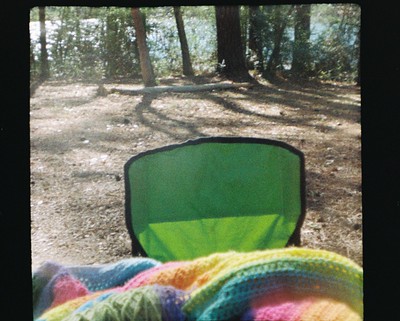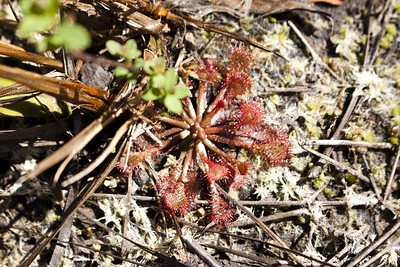September and October 2017 Book Report
I’ve been reading quite a bit and I’m actually reading a paper book right now! Forest finally got a big boy bed so we’re trying to switch up bedtime routines which means hopefully more paper books are in my future. I do like the ease of hopping into the Kindle and browsing the library for books, though, so that won’t go away.
Lots to review, let’s get to it!
Completed
- The Orphan Mother by Robert Hicks: As I said back in August’s book report this was a sort of sequel to The Widow of the South. It’s post Civil War and freed slaves are attempting to adjust to live as free people, getting a foothold into society, and making a life of their own. It’s a wobbly time, right when the early forms of the KKK and such are beginning to form. The story is told from the viewpoint of Mariah Reddick, a former slave of Carrie McGavock, TWOTS, and is about her son who was going to attempt to run for public office in their small Tennessee town before he is brutally murdered by a mob while giving a speech. It’s a complicated storyline involving a former assassin, a black man born free in the north, who is hired by a white man in this town to murder another man. There’s a plot behind that reason and of course a larger story, but I was reading it on the heels of the Charlottesville and easily found far too many parallels to current situations. Worth a read and can easily stand alone from TWOTS.
- Men Explain Things to Me by Rebecca Solnit: This actually belonged in August’s list but I forgot to add it! You can read the title essay here.
Yes, guys like this pick on other men’s books too, and people of both genders pop up at events to hold forth on irrelevant things and conspiracy theories, but the out-and-out confrontational confidence of the totally ignorant is, in my experience, gendered. Men explain things to me, and other women, whether or not they know what they’re talking about. Some men.
Every woman knows what I’m talking about. It’s the presumption that makes it hard, at times, for any woman in any field; that keeps women from speaking up and from being heard when they dare; that crushes young women into silence by indicating, the way harassment on the street does, that this is not their world. It trains us in self-doubt and self-limitation just as it exercises men’s unsupported overconfidence.
The term mansplaining evolved from the title essay. Definitely a book worth reading—it is a compendium of her other essays, too.
- Euphoria by Lily King: What can I say, I was snagged to read this book because of its cover, a very colorful rendition of a rainbow eucalyptus!
I loved this book, more than I imagined I would. It’s a little slow and confusing at first but after the first couple of chapters, it moves quickly. It’s loosely based on the life of famed anthropologist Margaret Mead and two of her husbands but the book does not follow her life after the story in the novel. It takes place in New Guinea, where anthropologists are studying the local tribes, some of which had only recently stopped with cannibalistic rituals. It takes place in the 1930s so there is still a feeling of remoteness and non-contact with some of these tribes. I highly recommend this book!
- Ilsa by Madeleine L’Engle: My first L’Engle novel and I am intrigued to read more. This book was actually out of print for half a century before recently being republished. I think it was worth bringing back for the public to read. While the setting was never specifically stated there are plenty of references with habitat and a couple of other cities that made me think this is set somewhere near Jacksonville, Florida, or very near the Florida/Georgia border. It follows the life of Henry Porcher—the narrator—and Ilsa Brandes. The Porcher’s are a rich and connected family while Ilsa lives with her scientist father near the beach. It takes place in the early 1900s, before, during, and after WWI. It’s one of those quiet novels that you can really get into but the ending just ends and you are left wanting more. My only complaint would be that you never really get to know Henry’s inner workings—which may be the point. I also really enjoyed this one.
- A New Garden Ethic by Benjamin Vogt: I’ve been a fan of Vogt’s Deep Middle blog for several years now and have enjoyed seeing his yard transformation from standard suburban nothing to wild prairie landscape. I’ve not always agreed with some of his hard stances when he’s written about native plants on other blogs, but I enjoy being challenged to think about plants and gardens differently. When I saw he was publishing a book I looked forward to reading it and was happy to see that the library had it digitally. This book pairs nicely with Bringing Nature Home by Dr. Tallamy and The Humane Gardener by Nancy Lawson. My only complaint about the book would be that it needed to be broken up into more chapters and it would have been good to see some sort of “plan” or guidance for gardeners. It’s more of a philosophical book, something to get you to think outside the box and reevaluate some of your gardening principles.
- Reading People: How Seeing the World through the Lens of Personality Changes Everything by Anne Bogel aka Modern Mrs. Darcy: I was expecting something a little more when I started reading this book, however if you are new to personality typing this is a great book for beginners. If you are wondering what I’m talking about regarding personality, then you might want to read about the Myers Briggs personality test and you can take a test here. I am an INFJ, a type that is considered to only make up about 1% of the population. Yes, I’ve taken the test multiple times and through different platforms because when you see the rarity of the type, you want to make sure that’s correct. And here I am, INFJ. I’ve often wondered if I’ve mistyped and I’m supposed to be an INFP, also a not-so-common type, but Bogel’s chapter in the book explaining the different cognitive functions for the types really sealed the deal. Reading about the cognitive drivers in the past has been confusing and Bogel really made it clear and understandable. And then further reading into the Ni-Ti Loop—the introverted intuition and introverted thinking loop—that we can get into really hit home. Yep, that’s me! Could grief can I dig myself into a hole when I get into my head.
The rest of the book talks about other personality typing strategies such as Enneagram and Love Languages. It’s really a book about learning about yourself and your friends and family—figuring out how they work so you can work together in your relationships. Since they were both published near each other, Gretchen Rubin’s Four Tendencies was not covered in this book but she does mention Rubin briefly. I would be interested to see an updated edition in a few years that adds this into it. Gretchen has been on a ton of podcasts and has her own podcast if you are interested in learning about her framework—obliger here! Take her quiz here
Currently Reading
- The Home Place: Memoirs of a Colored Man’s Love Affair with Nature by J. Drew Lanham: loving this one so far! Reminds me a little of Ecology of a Cracker Childhood.
- Plant Dreaming Deep by May Sarton
- What Happened by Hillary Rodham Clinton: So, so good! Also, makes me so damn angry at so many people and sometimes I read a few pages and have to put it down because it is so upsetting. The first 30 pages put the day after the election back into my head and all of those tears came back. I have words, some of them filled with f-bombs. Let’s just say I’ve finally made it to the anger section of the grief cycle. I don’t know if I will ever get to acceptance because EFFFFFFFFFFF it all. This is me throwing the book at the wall because I’m so pissed off now. Ooh, better stop writing and save the rest of my anger for the final review next month when I finish reading the book.
What are you reading?



4 Comments
chel
Ack- I missed your redesign! It’s really nice! I usually read on NewNewsWire so I missed it when you uploaded- sorry if I’m way behind on commenting on that.
I don’t think I can bear to read HRC’s book until this current administration is banished and there’s someone sane in office and the US is back to being a country with leadership that stirs pride in people. When the elections happened, I remembered people immediately talking about 2018 mid terms and me thinking “that’s FOREVER, they have to fix this before then.” But they haven’t.
I hope hope hope that in the future they learn from this, and it’s a period of history when they will say “this is a time when America should have acted and cleaned up corruption, etc. but didn’t.” All countries have their blips in history- a time when they make grave mistakes with leadership and then learn from them. (I hope that the climate change deniers, flat earthers, and all the people who think mass shootings are fake conspiracies are also embarrsing footnotes in our history.) I am ready for period of time in our history to be over.
Marisa
I’ve heard so many good things about Men Explain Things to Me. I’m going to need to pick it up soon!
Patrice La Vigne
I am always amazed at how many books you tackle!! I am hoping to read more this winter.
I am intrigued by the HRC book … I’m not at all big into politics, but I do love her. What do you think? Should I give it a go? Do you own it btw? Maybe I could rent it from you when you’re done?
Rosemarie
I am reading a book called “(un) Natural Mom” with a group I am part of. It has a free personality test at talltreestraining.com
It actually is helping me to think about what kind of mothering style I am most likely to resemble and offers some tips for those in your family on how best to relate. Let me know if this is something you’d like to check out. I could snail mail it to you.